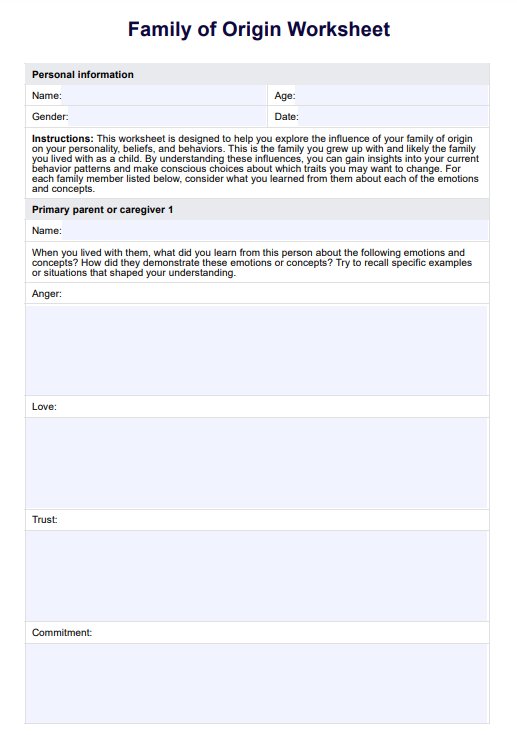Your family of origin is the family you were born or adopted into. In contrast, your family of choice consists of individuals with whom you've chosen to have close relationships, such as friends or partners.

Family of Origin Worksheet
Access our Family of Origin Worksheet template, designed to help clients understand the impact of their familial background on their personality and behavior.
Family of Origin Worksheet Template
Commonly asked questions
Expectations in a family of origin encompass the roles, responsibilities, and behaviors shaped by cultural, social, and familial norms and values. These might be broad (such as how children should behave or who should do most of the childcare) or specific (such as who does which chores).
A child's family of origin significantly influences their development, shaping their personality traits, behavior, and emotional well-being through learned patterns of interaction and communication.
EHR and practice management software
Get started for free
*No credit card required
Free
$0/usd
Unlimited clients
Telehealth
1GB of storage
Client portal text
Automated billing and online payments











